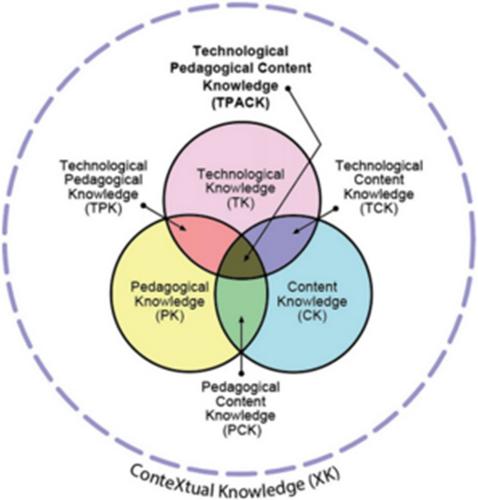Beyond TPACK: A case for foregrounding affect in technology rich 21st-century teaching and learning
Abstract
Background
This research was motivated by noticing shortcomings in the TPACK framework, which does not take account of the affective dimension (e.g., emotions, moods, attitudes and values) of teaching and learning with and about technology, despite this being a key predictor of whether teachers incorporate technology into teaching and learning. Reimagining TPACK as TAPACK to explicitly engage with affect offers a way of leveraging the influential TPACK framework to foreground the affective domain and encourage preservice teachers (PSTs) towards meaningful technology integration in teaching and learning.
Objectives
The goal of this research is to encourage teacher educators to explicitly engage PSTs with the affective dimension of integrating technology into teaching and learning by sharing strategies from our own research and practice.
Methods
We deploy reflexive inquiry to draw on our experience teaching into technology focused teacher education courses to crystallize key shortcomings in the existing TPACK framework and suggest a possible way forward.
Results and Conclusions
Our research suggests that engaging explicitly with the affective dimension by incorporating affect into the TPACK framework to become TAPACK may enhance technology focused teacher education courses by supporting PSTs to develop positive affective orientation towards technology, thereby increasingly the likelihood that PSTs will integrate technology into their practice.


 求助内容:
求助内容: 应助结果提醒方式:
应助结果提醒方式:


